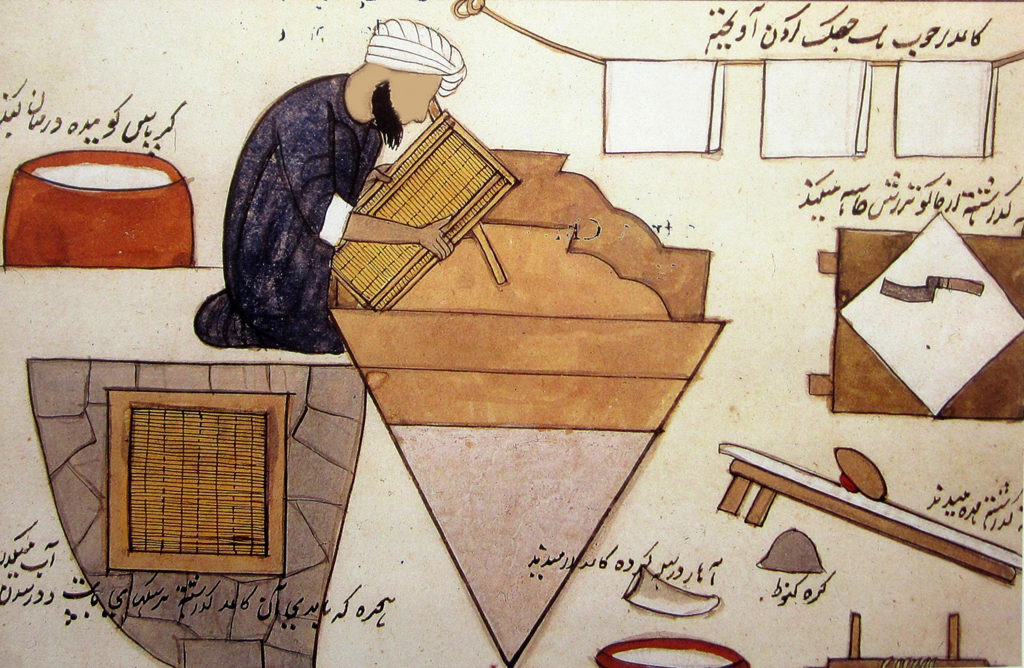Paper, originally, was brought by the Muslims from China. From an art, the Muslims developed it into a major industry. Paper mills flourished across the Muslim World. The impact of Muslim manufacture of paper paved the way for the printing revolution.
It followed the battle of Tallas (751) fought between Chinese and Muslims, when Chinese prisoners revealed the secret of paper making to the Muslims. From an art, the Muslims developed it into a major industry.
The Muslims employed linen as a substitute for the bark of the mulberry, which the Chinese used. Linen rags were disintegrated, saturated with water, and made to ferment.
The boiled rags were then cleared of alkaline residue and much of the dirt, and then the rags were beaten to a pulp by the use of a trip hammer, an improved method of maceration invented by the Muslims.
Many paper mills were built in Baghdad, and from there, the industry spread to various parts of the world. The paper mills constructed in Damascus were the major sources of supply to Europe, where as production increased, paper became cheaper and more available, and of better quality.
The technology of papermaking which first flourished in Iraq, Syria and Palestine, spread to the West. The first paper mill in Africa was built in Egypt around 850. A paper mill was built in Morocco from where it reached Spain in 950. The centre of fabrication there was Xatiba. From Spain and Sicily papermaking spread to the Christians in Spain and Italy. The first written reference to paper in the Christian West seems to be in the pseudonymous Theophilus Presbyter’s “The Art of the Painter” (first half of the 12th century). In 1293 the first paper mill in Bologna was set up. The first use of paper in England was in 1309, then Germany in the late stages of the 14th century; although, down to the close of the Middle Ages, the most important papermaking centres were in North Italy.
Of course, paper seems so ordinary today, but its use is fundamental to modern civilisation. By making use of this new material, paper, and manufacturing it on a large scale, devising new methods for its production, in the words of Pedersen: the Muslims: `accomplished a feat of crucial significance not only to the history of the Islamic book but also to the whole world of books.’
The decisive impact of Muslim manufacture of paper was, obviously, and directly to bring about a revolution in prepare the way for the invention of printing.
(This article was written at MuslimHeritage.com and modified by HikmahWay Institute & AMYN Staff)
Link: http://www.muslimheritage.com/article/beginning-paper-industry

